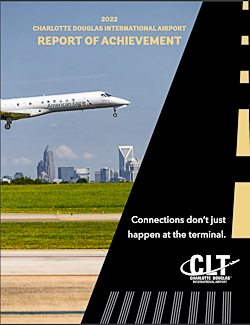Why Peer Reviews Are More Important Than Ever
Why Peer Reviews Are More Important Than Ever
When it comes to aviation peer reviews, the more things change the more they stay the same. Content changes relentlessly, but form does not - at least it should not, and for very good reason. The need for aviation professionals to convene and exchange information through a structured process is a constant.
Actually, there might be one change: With the current lightning-speed advances in technology and processes, peer reviews are more important now than they ever were.
This is not the aviation industry I joined 47 years ago. Yes, we're still flying planes and we still have pilots and airports. But the context of virtually everything else has changed, particularly when you take into account events like Sept. 11. In fact, security serves as a perfect example. Previously, airport security was largely about figuring out where to put metal detectors and aircraft operating area fencing. Today, security is an integral part of airport design - from conception through construction and operation. That's not a small change.
Still not convinced?

William A. Fife |
When I started the first aviation peer review group 25 years ago, I never would have believed that "clouds" would eventually refer to data storage and transfer as well as airfield weather conditions. Because information systems are changing so rapidly and becoming more complex, and because they are affecting more areas of our industry, the importance of meaningful exchanges about new technology and processes could not be greater. As the margin of error slims with each technological advance, aviation professionals can easily go off the rails if they don't gain from the experience and lessons learned by others.
If you're still not convinced, let me illustrate it this way: Each year, I present a guest lecture titled Airport of the Future for an Airport Systems Planning and Design course at the University of California, Berkeley. This year, my presentation contained some of the following issues, which I gleaned from recent peer reviews and various LinkedIn groups:
• HPD (Health Product Declaration) and EPD (Environmental Product Declaration) for material selection
• LCA (Life-Cycle Assessment)
• Air-rail links
• Centralized utility plants
• Project validation, costs and risk identification
• Procurement and alternative project delivery methods
• Multiple agency coordination
• Public-private partnerships
• Technology and security
• Runway improvements to help with climate change
• Cybersecurity and the role of airports in resiliency planning
How many of these topics would have been important 10 years ago? Five years ago? How many of these topics could be eclipsed by something else tomorrow?
In truth, none of us knows what tomorrow will bring. But the peer review process gives us a mechanism to handle the future, no matter what it holds.
Now let me give you a recent, industry-specific example of the value of peer reviews: International traffic is one of the few bright lights for airlines at present. But increased traffic creates greater challenges for Customs officials. Recently, some airports installed passport readers and kiosks that markedly improve flow rates. Not only does this speed the Customs process, it also provides an added measure of security, as Customs officials are freed up to better observe passengers. Implemented initially in Canada (because staffing cutbacks there preceded reductions here), the smooth U.S. implementation of Customs kiosks came as a direct result of a peer review! Canadian officials explained how they rolled the kiosks out and the issues they encountered - the type of knowledge that can only be derived from informed, experienced users.
So you see: The more things change, the more they really do stay the same. Though the content of aviation peer reviews will change, the form does not. And neither does the need for peer reviews. With funding more scarce than ever before and technology changing so rapidly, peer reviews are actually more important now than they ever were.
2022 Charlotte Douglas International Airport Report of Achievement
 Giving back to the community is central to what Charlotte Douglas International Airport and its operator, the City of Charlotte Aviation Department, is about, and last year was no different.
Giving back to the community is central to what Charlotte Douglas International Airport and its operator, the City of Charlotte Aviation Department, is about, and last year was no different.
Throughout 2022, while recovering from the COVID-19 pandemic, we continued our efforts to have a positive impact on the Charlotte community. Of particular note, we spent the year sharing stories of how Connections Don't Just Happen at the Terminal - from creating homeownership and employment opportunities to supporting economic growth through small-business development and offering outreach programs to help residents understand the Airport better.
This whitepaper highlights the construction projects, initiatives, programs and events that validate Charlotte Douglas as a premier airport.
Download the whitepaper: 2022 Charlotte Douglas International Airport Report of Achievement.








